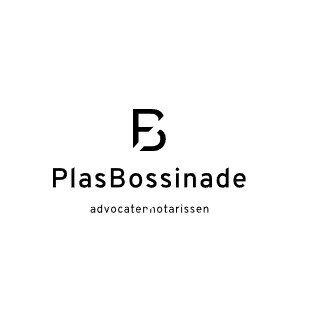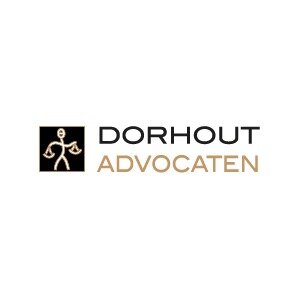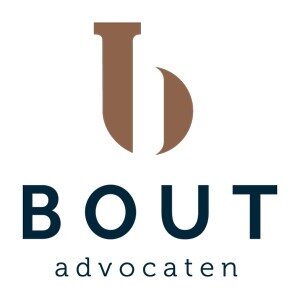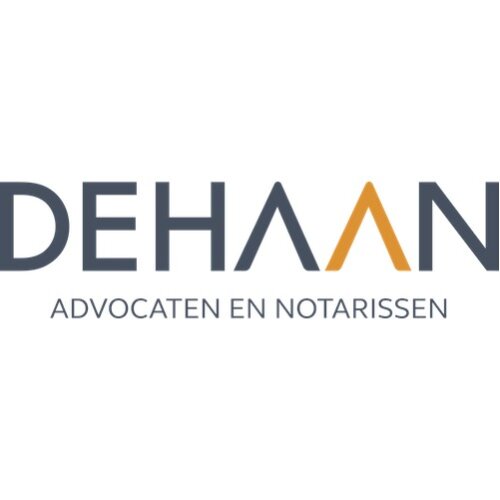Best Conveyancing Lawyers in Groningen
Share your needs with us, get contacted by law firms.
Free. Takes 2 min.
Free Guide to Hiring a Real Estate Lawyer
List of the best lawyers in Groningen, Netherlands
About Conveyancing Law in Groningen, Netherlands
Conveyancing in Groningen, Netherlands refers to the legal process of transferring property ownership from one party to another. This process is essential when buying or selling real estate, ensuring both parties meet legal requirements, obligations are clear, and the buyer obtains a good and unencumbered title to the property. Dutch conveyancing combines administrative procedures, contract drafting, and registration with the Land Registry. In Groningen, as in the rest of the Netherlands, only a certified civil law notary (notaris) is authorized to oversee property transfers, making their role crucial throughout the transaction.
Why You May Need a Lawyer
While a notary is required for property transfers in the Netherlands, there are situations where involving a legal professional or specialized conveyancing lawyer is highly advised. Common scenarios include:
- Complex or high-value transactions requiring additional due diligence
- Dealing with legal disputes regarding property boundaries, rights of way, or previous ownership
- Complications in the title or registration process that require legal analysis
- Foreign buyers unfamiliar with Dutch property law and regulations
- Inheritance situations when property is part of an estate
- Divorce or partnership dissolution involving property division
- Issues related to homeowners associations (Vereniging van Eigenaren or VvE)
Legal assistance ensures your rights are protected, risks are minimized, and the process moves smoothly.
Local Laws Overview
Conveyancing in Groningen is governed by Dutch national law, but certain aspects of local practice or zoning regulations may apply. Key legal elements include:
- The Dutch Civil Code (Burgerlijk Wetboek) sets the general rules for property transactions.
- All transactions must be overseen by a civil law notary authorized in the Netherlands.
- The transfer of ownership is only completed once the deed of transfer (akte van levering) is signed and registered at the Dutch Land Registry (Kadaster).
- Buyers are strongly advised to conduct a title search before purchase to identify existing mortgages, easements, or restrictions.
- Preliminary purchase agreements (koopovereenkomst) are often signed, which may be subject to a legal “cooling-off” period of three days for private buyers.
- For apartments or properties with shared amenities, the VvE rules and financial status require careful review.
- The municipality of Groningen may have specific zoning plans or environmental considerations affecting the use of the property.
- Transfer tax (overdrachtsbelasting) is payable by the buyer and must be considered in the transaction.
Frequently Asked Questions
What is the role of the notary in Dutch conveyancing?
In the Netherlands, a civil law notary is responsible for preparing and authenticating the transfer deed, ensuring the transaction is legally valid, and registering the property at the Kadaster. The notary acts impartially for both buyer and seller.
Do I need a lawyer in addition to a notary?
While not essential for standard transactions, involving a property lawyer can be beneficial for complex deals, disputes, or for foreign buyers unfamiliar with Dutch law, as they provide specialized legal advice and representation.
What is the “cooling-off” period after signing a purchase agreement?
Private buyers in the Netherlands are entitled to a three-day cooling-off period after signing the preliminary sales agreement, during which they can cancel the contract with no penalty.
Can foreigners purchase property in Groningen?
Yes, there are no legal restrictions on foreigners buying property in Groningen or elsewhere in the Netherlands, but language barriers and unfamiliar legal procedures make it wise to seek professional guidance.
What costs are involved in buying property?
Costs include the purchase price, transfer tax (usually 2 percent for residential properties), notary fees, registration fees, legal advice fees if applicable, and possibly mortgage arrangement costs.
How is ownership transferred in Groningen?
Ownership is officially transferred when the deed of transfer is signed at the notary’s office and registered in the Land Registry.
What should I check before buying a property?
It is important to verify ownership, mortgages or liens, zoning restrictions, VvE status for apartments, and any issues flagged in a structural survey or building inspection.
What is a preliminary purchase agreement?
The preliminary purchase agreement, or koopovereenkomst, is a binding contract outlining the terms of sale, subject to any agreed conditions (such as financing or inspections).
What happens if either party breaches the sales agreement?
The non-defaulting party may claim damages, and the agreement may specify a fixed penalty, usually 10 percent of the purchase price, for late or failed completion.
Are there specific local rules in Groningen that affect conveyancing?
Yes, local zoning plans, development restrictions, environmental regulations, and municipal policies may affect what can be done with the property. The municipality of Groningen provides access to this information.
Additional Resources
For further support and information regarding conveyancing in Groningen, the following resources can be valuable:
- Kadaster - Dutch Land Registry, for property history and registration
- Royal Dutch Association of Civil-law Notaries (Koninklijke Notariële Beroepsorganisatie)
- The Netherlands Bar Association (Nederlandse Orde van Advocaten), for finding qualified lawyers
- Municipality of Groningen, for local zoning and building regulations
- Vereniging Eigen Huis, a consumer association for homeowners
- Legal aid services in the Netherlands, for those seeking affordable legal help
Next Steps
If you require legal assistance with conveyancing in Groningen, take the following steps:
- Identify your specific legal needs, such as reviewing contracts, due diligence, or addressing disputes.
- Consult with a specialized property lawyer or legal advisor familiar with Dutch conveyancing law, especially if your case is complex or you are an international buyer.
- Contact a recognized civil law notary with experience in local property transactions.
- Gather all relevant documentation about the property, prior agreements, and your identification.
- Reach out to local authorities or consumer associations for further guidance if necessary.
- Be proactive in understanding your rights and obligations to ensure a secure and efficient property transaction.
By seeking reliable legal advice early and working with qualified professionals, you can safeguard your interests and navigate the conveyancing process in Groningen with confidence.
Lawzana helps you find the best lawyers and law firms in Groningen through a curated and pre-screened list of qualified legal professionals. Our platform offers rankings and detailed profiles of attorneys and law firms, allowing you to compare based on practice areas, including Conveyancing, experience, and client feedback.
Each profile includes a description of the firm's areas of practice, client reviews, team members and partners, year of establishment, spoken languages, office locations, contact information, social media presence, and any published articles or resources. Most firms on our platform speak English and are experienced in both local and international legal matters.
Get a quote from top-rated law firms in Groningen, Netherlands — quickly, securely, and without unnecessary hassle.
Disclaimer:
The information provided on this page is for general informational purposes only and does not constitute legal advice. While we strive to ensure the accuracy and relevance of the content, legal information may change over time, and interpretations of the law can vary. You should always consult with a qualified legal professional for advice specific to your situation.
We disclaim all liability for actions taken or not taken based on the content of this page. If you believe any information is incorrect or outdated, please contact us, and we will review and update it where appropriate.











